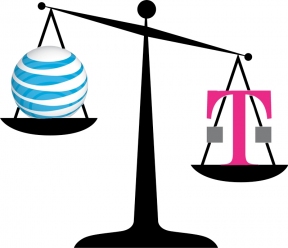In the wake of withdrawing its application to acquire T-Mobile, AT&T has hit yet another obstacle otherwise known as the FCC. See, before AT&T pulled its application, the FCC had big plans to put the deal before an administrative law judge, effectively prolonging the process and magnifying the details of the merger. As part of those big plans, the FCC had compiled an 109-page report with their findings during the review process. AT&T had expected this massive report to stay under the rug since it had withdrawn its application, but the FCC feels it “furthers transparency.”
And what, might you ask, is in this staff report?
Really, really bad news for AT&T. From the FCC’s official release:
The draft hearing designation order concluded, based on the staff’s analysis, that the record overall does not support a finding that the proposed AT&T/T-Mobile merger would serve the public interest, convenience, and necessity and that the record presents a number of substantial and material questions of fact.
But wait, there’s more:
In the report, the staff finds that the transaction, which would result in the top two wireless providers having a market share of approximately 75 percent, would substantially lessen competition and its accompanying innovation, investment, and consumer price and service benefits, thus undermining key goals of the Communications Act. Indeed, the staff notes that the unprecedented increase in market concentration that would result from this merger triggers the Commission’s screening tests for possible anti-competitive effects in a large number of local wireless markets.
In other words, the report stands behind the claim that this deal will cause a very real duopoly, or at the very least, force the FCC to investigate. But the blue carrier still has a few tricks up its sleeve, right? Two of AT&T’s biggest talking points during this persuasion have been job creation and the acquisition of much-needed spectrum. The FCC staff report had this to say on the matter:
The staff also explains that the economic and engineering models on which the Applicants (AT&T/DT AG/T-Mobile) rely to show consumer benefits are, in the staff’s assessment, unreliable and, at a minimum, raise substantial and material questions of fact. The staff additionally identifies internal AT&T documents and consistent historical practices that contradict AT&T’s claim that merging with T-Mobile is essential for AT&T to build out its LTE network to 97 percent of Americans. The staff finds the Applicants’ assertions that the transaction would create jobs in the United States to be inconsistent with AT&T’s internal analyses and record statements concerning cost reductions from the merger. The staff also finds that there are serious questions whether the merger of AT&T and T-Mobile would cause other public harms that are not offset by the claimed benefits.
Sentence by sentence, the FCC has whittled AT&T’s argument down to a tooth pick. And it seems like releasing this report falls into a bit of a grey area (now that AT&T’s withdrawn its application), which is even more unfortunate for AT&T. The FCC gives some justification for releasing the report, stating that it would be “unfair to the parties and participants” who’ve been working on this deal, and noting that AT&T is still planning on moving forward with this merger, according to its own statement.
AT&T had no idea that the FCC would release this report, and has said the following:
The FCC has recognized that it is required by its own rules to dismiss our merger application. This makes all the more troubling their decision to nonetheless release a preliminary staff report on the merger. This report is not an order of the FCC and has never been voted on. It is simply a staff draft that raises questions of fact that were to be addressed in an administrative hearing, a hearing which will not now take place. It has no force or effect under law, which raises questions as to why the FCC would choose to release it. The draft report has also not been made available to AT&T prior to today, so we have had no opportunity to address or rebut its claims, which makes its release all the more improper.
